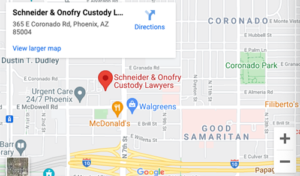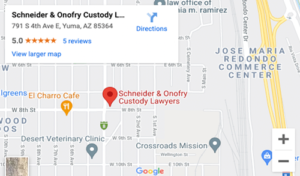The Arizona Rules of Professional Conduct allow attorneys to refer contingency fee cases to other lawyers who may be in a better position to litigate the case.
In 2003, Rule ER 1.5(e) was amended to allow attorneys to refer clients and potential clients to other attorneys and share in the fee earned. This is most commonly done in complex and/or costly contingency fee litigation.
Comment 8 to ER 1.5 states that a division of the fee “facilitates association of more than one lawyer in a matter in which neither alone could serve the client as well, and most often is used when the fee is contingent and division is between a referring lawyer and a trial specialist.”
In order to comply with Arizona’s ethical rules, the following requisites must be met:
- the division is in proportion to the services performed by each lawyer, and both lawyers assume joint responsibility for the representation;
- the client agrees, in writing, to the participation of all lawyers involved and to the lawyers dividing the fee; and
- the total fee is reasonable.
The Rule does not require the client to agree to the division of the fees between the attorneys, so long as the client acknowledges that there will be a fee division, and further requires that the entire fee be reasonable – which is also a requirement in regard to contingency fees in general. Therefore, so long as the contingency fee is in accord with prevailing norms, the attorneys are free to structure the division of the fee.
The State Bar Ethics Opinion No. 04-02 says that joint responsibility “exists if the referring attorney assumes financial responsibility for any malpractice that occurs during the course of the representation.” This definition “allows flexibility in structuring the relationship among the attorneys and client involved.”
The referring attorney is not required to have any sort of supervisory responsibility or other substantive involvement in the case.















